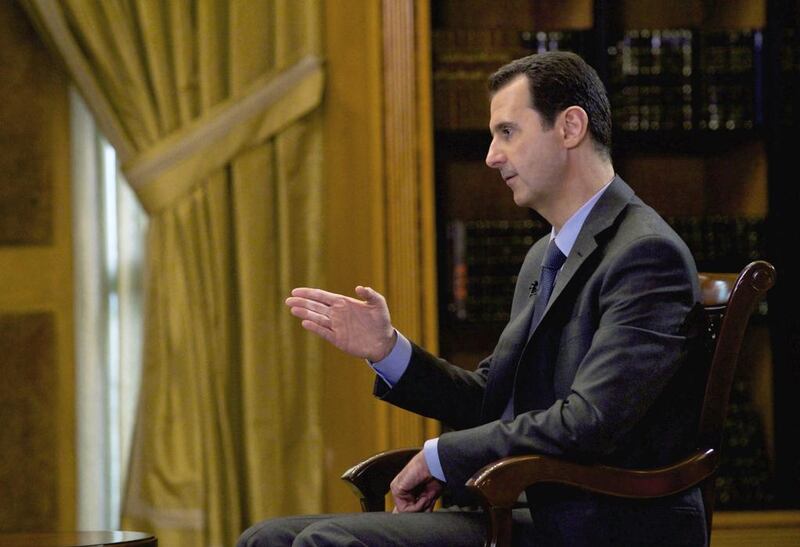Thanks to its political and diplomatic emissaries, Moscow has been at the heart of the Syrian crisis from the outset. Now, however, it is physically present on Syrian soil with its troops, warplanes and weapons. Russia's militarisation in Syria is a game changer. A step of this calibre doesn't simply fall under tactical manoeuvring, it is a strategic shift, suggested the columnist Amine Kamourieh in the Lebanese daily Annahar.
In the name of counterterrorism action, Washington, too, is marking its presence in the Syrian conflict.
“Since the start of this war, Americans have done nothing but try to contain it. The Russians, on the other hand, are attempting to nip it in the bud,” the writer said. Washington opted to engage in the conflict via ineffective external allies with their own agendas once Syrian president Bashar Al Assad was isolated, he claimed. Meanwhile, Moscow has been “waging the war alongside the regime in a bid to extend Mr Al Assad’s stay in power”, he said.
The war on terrorism isn’t a summer stroll. Venturing into the territories that were lost to the regime might prove too costly for Syrians, and for the regular army to reach ISIL strongholds, it has to pass by the other armed opposition cantons classified as moderate. The writer asked: will Mr Al Assad take advantage of Moscow’s support on the ground to annihilate them or at least to subjugate them ahead of a possible settlement?
But, Kamourieh said, Russia’s military presence in Syria is not limited to counterterrorism action or preventing Mr Al Assad’s fall. Russia is there to build itself a permanent base in the country and preserve its presence in the Middle East, he said.
He continued: “When Russian military uniforms are active abroad, strategic talks with Washington soon become more animated, and this is indeed what is happening.”
Should the Russia-US talks be successful, they could lead to settlements or exchanges on a number of fronts from Ukraine to Libya and Iraq. The presence of Russian troops in Syria could quell Turkey’s ambitions and impose new rules of engagement with Israel, which, in turn, has begun talks with Moscow.
A strong Russian military engagement on the ground will come at the expense of Iran, especially since Russian president Vladimir Putin is in favour of a more substantial role for Egypt in Syria.
The columnist Abdulwahab Badrakhan commented on the same issue in Al Ittihad, the Arabic-language sister paper of The National. He wrote that Russia's move in Syria must have caused confusion in Washington. But if it came to the US administration as a surprise, that denotes serious shortcomings on the part of America's intelligence apparatus. If, on the other hand, Washington knew about it and didn't do anything, then it is now too late.
“The new Russian role didn’t start last week. It has already reached an advanced stage as it is, which means it has been in the works for quite some time, and was being discussed during the many meetings that brought the Russian and Syrian foreign ministers together to discuss a ‘political solution’,” the writer noted.
It is no secret that Russia has built an airbase in Latakia and is working to develop its seaport in Tartus, expanding its footprint in the region.
“This all means that the situation on the ground has changed completely and it will most probably lead to changes in the status quo. Russia’s new positioning has two main objectives: to crush the opposition in order to fortify the regime and to crush ISIL in order to rehabilitate the regime,” he said.
Translated by Racha Makarem
rmakarem@thenational.ae





